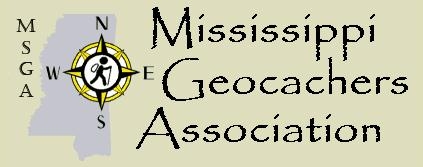Mississippi Blues Trail
Cache Challenge
The Mississippi Blues Trail was established by the Mississippi Bureau of Tourism to recognize the unique connection our state has with a style of music known as the "Mississippi Blues" or simply "the Blues." Many musicians acquired fame, and for some fortune, playing this style of music. The MBT decided to recognize these artists and their beginnings here in Mississippi.
The MBT divided the state into five basic regions where Blues Trail markers are placed.
These markers are in places of historical significance to the blues music heritage. Each marker tells about a specific piece of that history. The vast majority of these markers are in the Delta region in the northwest part of the state.
This challenge involves visiting those historical MS Blues Trail markers scattered out around the state of Mississippi...and even beyond.
Participating cities include : Tupelo,Columbus,Jackson,Holly Springs,Cleveland,Clarksdale,University of Mississippi,Aberdeen,Meridian,Vickburg...
At or near many of these markers there is a geocache hidden. Your quest is to visit these markers and find the geocaches associated with them.
Each Blues Trail Geocache consists of one find towards the final goal of 50 Blues Trail Geocaches in order for challenge completion for final.
Here is a bookmark link to the current blues trail caches -Mississippi Blues Caches
We hope your ventures along the way
to completion of this challenge are both
memorable and rewarding!

Biloxi Blues - Biloxi The Mississippi Coast, long a destination for pleasure seekers, tourists, and gamblers, as well as maritime workers and armed services personnel, developed a flourishing nightlife during the segregation era. While most venues were reserved for whites, this stretch of Main Street catered to the African American trade, and especially during the boom years during and after World War II, dozens of clubs and cafes here rocked to the sounds of blues, jazz, and rhythm & blues. Biloxi was strutting to the rhythms of cakewalk dances, vaudeville and minstrel show music, dance orchestras, and ragtime pianists by the late 1800s, before blues and jazz had fully emerged. Biloxi’s musical culture was particularly influenced by and intertwined with that of New Orleans, and Crescent City jazz pioneers Jelly Roll Morton (1890-1941) and Bill Johnson (c. 1874-1972) lived in Biloxi in the early 1900s before moving on to California, Chicago, and other distant locales. Morton’s godmother, reputed to be a voodoo practitioner in New Orleans, had a home in Biloxi. In 1907-08, Morton frequented a Reynoir Street gambling den called the Flat Top, where he used his skills as a pianist, pool player, and card shark to hustle customers, particularly workers who flocked to town from nearby turpentine camps to engage in a game called “Georgia skin.” At the Flat Top, Morton recalled, “. . . Nothin’ but the blues were played . . . the real lowdown blues, honky tonk blues.” Morton courted a Biloxi woman, Bessie Johnson, whose brothers Bill, Robert, and Ollie (“Dink”) were musicians. The Johnsons lived on Delauney Street and later on Croesus Street, just a few blocks west of this site. Bill Johnson’s touring unit, the Creole Band, introduced New Orleans ragtime, jazz, and blues to audiences across the country. Bessie later adopted the show business moniker of Anita Gonzales. Other early Biloxi musicians included minstrel show performers Romie and Lamar “Buck” Nelson; drummer Jimmy Bertrand, who recorded with many blues and jazz artists in Chicago; and William Tuncel’s Big Four String Band. In the 1940s, as business on Main Street prospered, clubs featured both traveling acts and local bands, as well as jukeboxes and slot machines. Airmen from Keesler Field participated both as audience members and musicians; Paul Gayten, a noted blues and R&B recording artist, directed the black USO band during World War II, and Billy “The Kid” Emerson, who recorded for the legendary Sun label, served at Keesler in the 1950s. Both Gayten and Emerson got married in Biloxi. Blues/R&B producer-songwriter Sax Kari once operated a record store on the street, and rock ‘n’ roll star Bo Diddley’s brother, Rev. Kenneth Haynes, came to Biloxi to pastor at the Main Street Baptist Church. Local musicians active in later years included Charles Fairley, Cozy Corley, Skin Williams, and bands such as the Kings of Soul, Sounds of Soul, and Carl Gates and the Decks. After a period of decline, local entertainment perked up again in the 1990s as casinos and the Gulf Coast Blues and Heritage Festival brought a new wave of blues and southern soul stars to Biloxi. Congrats to Mitrustme for the FTF
